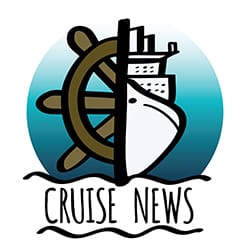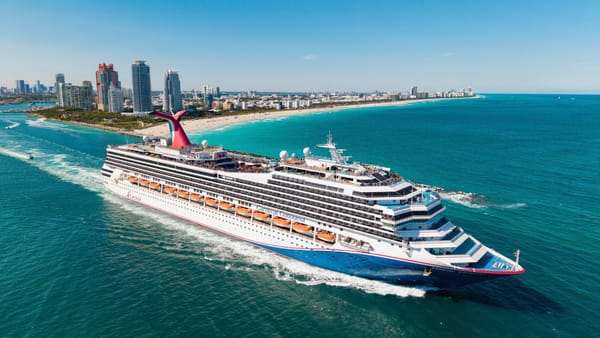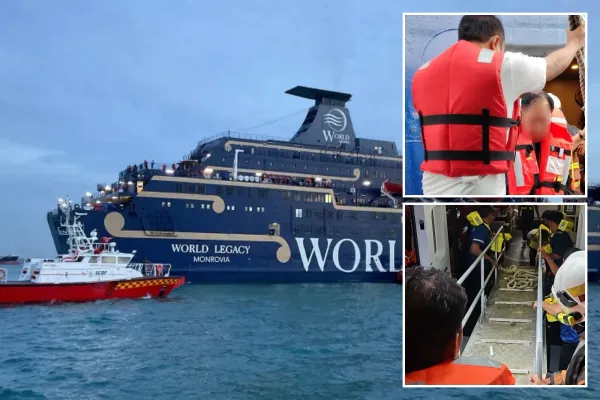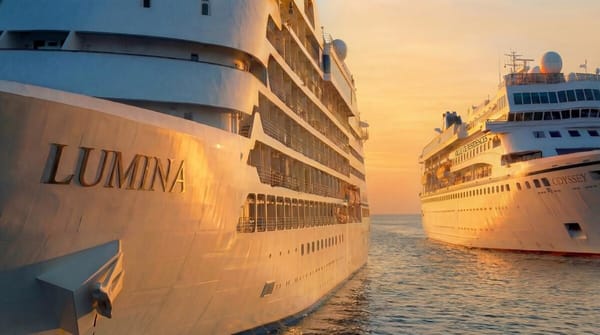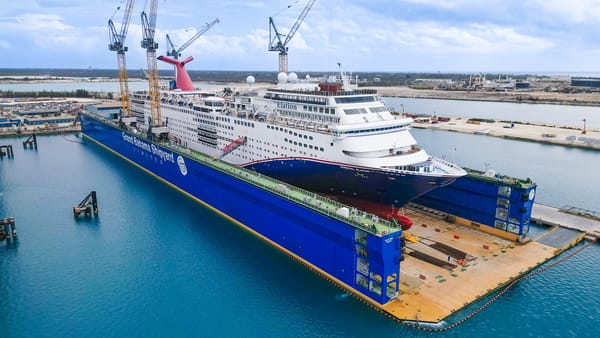New Zealand raises cruise passenger fees significantly

New Zealand recently announced a notable increase in border processing fees for cruise passengers, raising the levy from NZ$16.03 to NZ$27.82. This increase, set to take effect on December 1, has sparked concerns from the cruise industry regarding its potential negative impact on cruise tourism in the country and its accompanying economic benefits.
The cruise industry is crucial for New Zealand, contributing significantly to local economies through tourism and piquing the interest of international cruisers. Cruise Lines International Association (CLIA) Australasia managing director Joel Katz expressed worries that international cruise ships could be discouraged from visits to New Zealand due to rising costs.
Impacts of the Fee Increase on the Cruise Industry
The increased processing fees are expected to impose approximately NZ$3 million in unexpected costs on cruise lines for the current season. These additional financial burdens appear particularly detrimental given the current struggles within the tourism sector, fueled by already existing high operational costs.
Jacqui Lloyd, CEO of the New Zealand Cruise Association (NZCA), echoed these concerns, stating that the fee hike exacerbates an ongoing cost crisis impacting local businesses and communities. Such developments could potentially lead to a decline in cruise ship calls and, more worrying, deter cruise lines from including New Zealand in their itineraries.
Looking Ahead to the 2024-25 Season
Despite the fee increase, the upcoming cruise season remains a point of anticipation. The Diamond Princess is scheduled to be the first international cruise ship to set sail for the 2024-25 season, docking in Auckland.
Across the country, there are expectations of welcoming approximately 279,000 passengers and about 119,000 crew members over 46 vessels during the cruise season, including 899 port calls. However, this marks a 20% reduction in port calls compared to the previous 2023-24 season.
The Economic Impact of the Cruise Industry
The cruise industry significantly stimulates local economies, impacting not just the ports, but also surrounding businesses that rely on tourism-driven spending. The anticipated arrival of 46 vessels this season symbolizes hope for regional economies that benefit triply from docking fees, tourism activity, and employment opportunities.
In garbling terms, the increased fees might stifle the economic boon that cruise tourism traditionally offers. The New Zealand Cruise Association is diligently preparing an economic impact assessment for the 2023-24 period, expected to be released shortly, giving stakeholders more insights into the financial implications of these changes.
Pre-Season Optimism
Despite the challenges posed by the fee increase, regions across New Zealand have been gearing up for the cruise season with palpable excitement and optimism. Local communities are actively participating in preparations to welcome the influx of tourists expected from cruise ships, underscoring the vital role cruise tourism plays in regional economies.
The upbeat sentiment observed in pre-season regional visits indicates a dedication to maximizing the benefits and convenience for tourists. This preparation is evident in local businesses ramping up services to enhance visitors' experiences in New Zealand.
Potential Future Developments in the Cruise Industry
The New Zealand government would need to weigh the financial benefits derived from cruise tourism against the potential downsides imposed by increased processing fees. Understanding the delicate balance in these dynamics will be essential as the industry strives for recovery and expansion following the pandemic-induced downturn.
Industry experts advocate for a re-evaluation of fee structures that could allow growth within the cruise sector while fostering sustainable relationships with international cruise lines. Such a rethink may be vital in fostering a competitive edge in an ever-evolving market.
The Global Context of the Cruise Industry
The challenges experienced by New Zealand's cruise sector are reflective of broader issues plaguing the global cruise industry. Many regions worldwide are adapting to new economic realities, pushing businesses to find creative solutions and strategies to appeal to the modern traveler.
As the industry works towards greater sustainability and economic stability, developing relationships with local governments—including negotiations over processing fees—will likely become an increasingly pressing matter. Collaboration between the cruise industry and local authorities may pave the way for more supportive regulations moving forward.
Conclusion
The recent announcement by the New Zealand government to increase cruise passenger processing fees raises significant concerns among industry stakeholders. While the anticipated economic impact of cruise tourism remains vital for local regions, businesses must navigate the challenges resulting from rising costs.
As the 2024-25 season approaches, the industry awaits to see how the fee hike will influence the number of cruise ships visiting and the overall economic landscape. The future of New Zealand’s cruise tourism hinges on industry resilience and a collaborative approach towards sustainable growth in an increasingly competitive sector.
FAQs
1. What are the new processing fees for cruise passengers in New Zealand?
The New Zealand government has increased the border processing fee for cruise passengers from NZ$16.03 to NZ$27.82, effective December 1.
2. How much will the fee increase cost the cruise lines this season?
The fee hike is expected to result in around NZ$3 million in unbudgeted costs for cruise lines during the current season.
3. What is the anticipated number of cruise passengers for the 2024-25 season?
New Zealand is expecting approximately 279,000 passengers and 119,000 crew members across 46 vessels during the upcoming cruise season.
4. Are there any economic impacts associated with the increase in cruise processing fees?
Yes, the fee increase may adversely impact local economies that benefit from tourism revenue, potentially leading to a reduction in cruise ship visits and related spending.
5. What measures could be taken to support the cruise industry in New Zealand?
Collaborative efforts between local governments and the cruise industry, including a re-evaluation of fee structures, may foster growth and sustainability in the sector.
